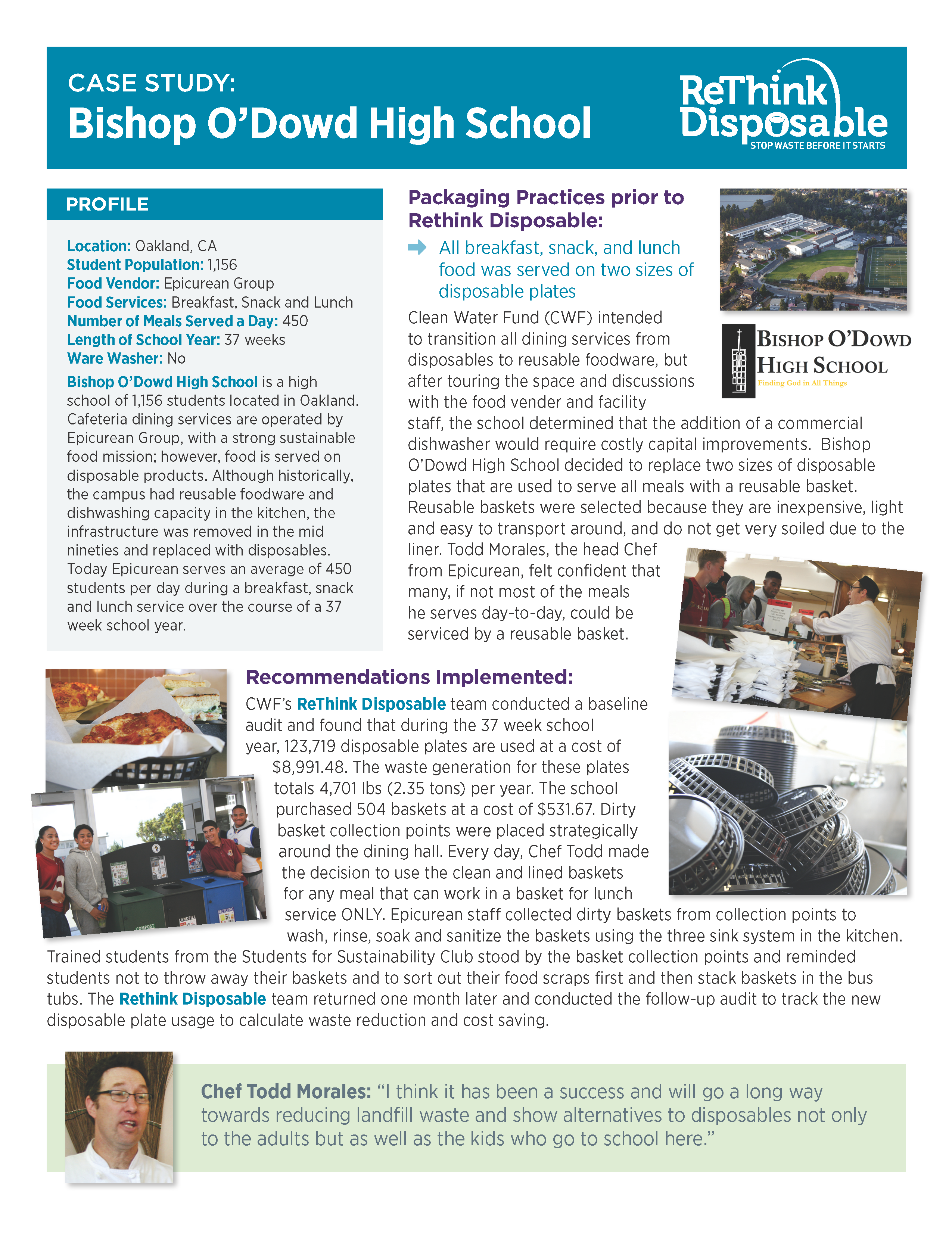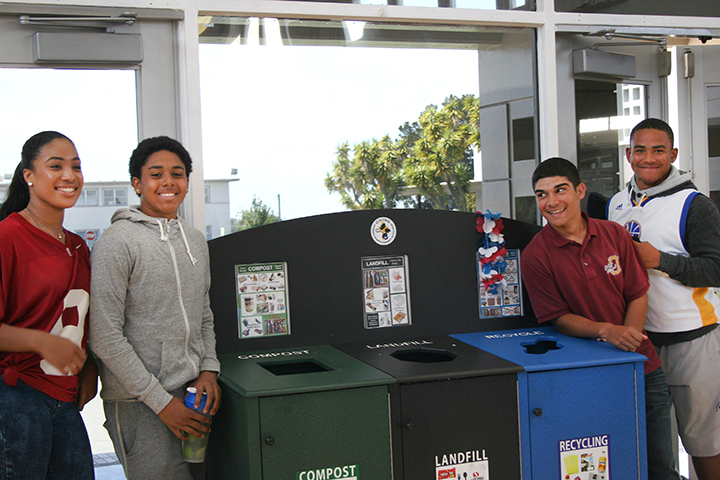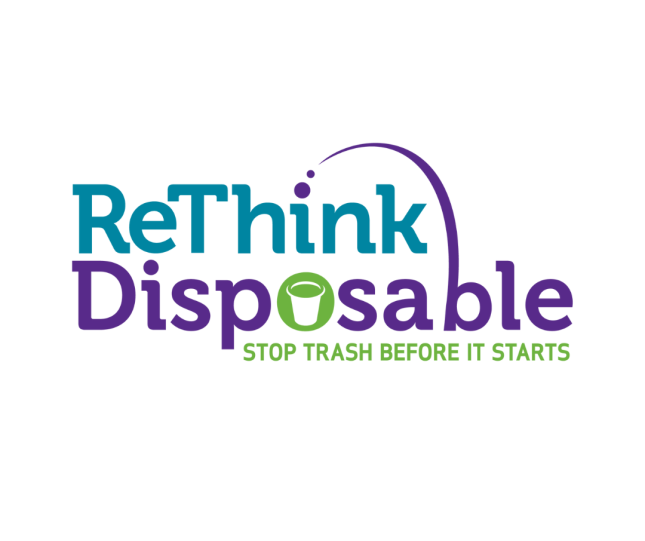Bishop O’Dowd High School is a high school of 1,156 students located in Oakland. Cafeteria dining services are operated by Epicurean Group, with a strong sustainable food mission; however, food is served on disposable products. Although historically, the campus had reusable foodware and dishwashing capacity in the kitchen, the infrastructure was removed in the mid nineties and replaced with disposables. Today Epicurean serves an average of 450 students per day during a breakfast, snack and lunch service over the course of a 37 week school year.
Packaging Practices prior to Rethink Disposable:
All breakfast, snack, and lunch food was served on two sizes of disposable plates.
After touring the space and discussions with the food vender and facility staff, the school determined that the addition of a commercial dishwasher would require costly capital improvements. Reusable baskets were selected because they are inexpensive, light and easy to transport around, and do not get very soiled due to the liner. Todd Morales, the head Chef from Epicurean, felt confident that many, if not most of the meals he serves day-to-day, could be serviced by a reusable basket.
Recommendations Implemented:
Clean Water Fund’s ReThink Disposable team conducted a baseline audit and found that during the school year 123,719 disposable plates are used at a cost of $8,991.48, generating 4,701 lbs of waste. The school purchased 504 baskets at a cost of $531.67. Dirty basket collection points were placed strategically around the dining hall.
Epicurean staff collected dirty baskets from collection points to wash, rinse, soak and sanitize the baskets using the three sink system in the kitchen. Trained students from the Students for Sustainability Club stood by the basket collection points and reminded students not to throw away their baskets and to sort out their food scraps first and then stack baskets in the bus tubs.
Lessons Learned:
Replacing disposables with reusables can be as simple as selecting one or two big ticket service items and replacing them with reusable product alternatives. The school did not have to invest in a costly commercial dishwasher, nor did they incur additional labor costs for collecting and washing the reusable baskets.
Due to loss, breakage and students simply leaving the baskets around campus instead of bringing them back to the bus tubs, only 296 baskets remained at the end of the pilot project reflecting a 41% loss. The cost of replacing 50% of the reusable baskets every semester that are lost or damaged was factored into the program impacts calculation as an “ongoing cost”.
To reduce future product loss, Clean Water Fund recommended additional collection units be placed around campus at common eating areas far from the dining room and increased training and education for the student body and facilities staff on returning collected baskets.
Opportunities To Expand:
The results were achieved during this pilot project suggest that continuation and expansion of the program to breakfast service, staff lunch, and special event catering would achieve even greater waste reduction and cost savings. Other disposable products that could be transitioned to reusables were also identified. Chef Todd fully supports expanded renewable options, but difficult without infrastructure improvements in the kitchen.
The Bottom Line:
Improved presentation of food
Students practice daily sustainable behavior choices
$6,459 annual reduction in disposable foodware costs after payback period
100,212 disposable plates reduced per year
3,376 pounds (1.69 tons) of waste reduced annually
I think it has been a success and will go a long way towards reducing landfill waste and show alternatives to disposables not only to the adults but as well as the kids who go to school here.
Chef Todd Morales


